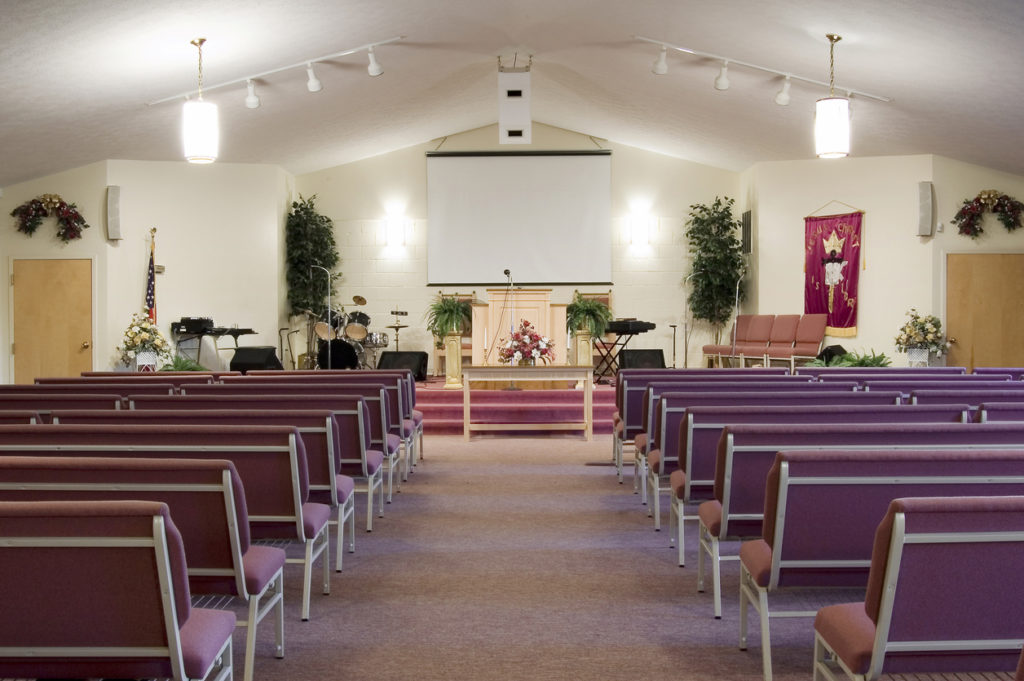
 No two churches are identical, and no two churches approach their search for a new pastor the same way either. While most churches follow the same general five phases of the pastor search process, they differ in how they complete those phases.
No two churches are identical, and no two churches approach their search for a new pastor the same way either. While most churches follow the same general five phases of the pastor search process, they differ in how they complete those phases.
Smaller churches, in particular, tend to approach the search process differently than larger churches. For the purposes of this article, “small church” is one with an average worship attendance of 50 or less.
6 Unique Characteristics
If you’re a member of a small church, here are six characteristics that are unique to the smaller church’s pastor search process.
#1: Longer search process
In my experience, the search process usually takes longer for smaller churches. With limited financial resources, most small churches cannot provide a full-time compensation and benefits package for their pastor and his family, which often requires the pastor to serve in a bi-vocational capacity.
As a result, the number of candidates willing to serve in a bi-vocational capacity is often less than the candidate pool for a church searching for a full-time pastor. In rural and small-town contexts, the number of candidates is restricted further since most bi-vocational candidates are unable to relocate to the church’s community.
#2: Localized search
Since there are not many men willing or able to relocate to serve in a bi-vocational position, most small churches must limit their search for their next pastor to those living within a reasonable driving distance of their church. Local candidates can continue to earn a paycheck from their current employer while also agreeing to serve as the pastor. It does not require them to make a job change or search for new sources of supplementary income.
Full-time churches have much more freedom to expand their search beyond their local boundaries if they so choose. In fact, it’s not uncommon for full-time candidates to move across the country if God calls them to a new ministry assignment. Therefore, full-time churches can determine if they want to conduct a local, regional, state or national search. Small churches usually don’t have that luxury.
#3: Lower percentage of budgeted personnel expenses
Utility bills, insurance coverage, and maintenance costs make no distinction between larger and smaller churches. Churches of all sizes have necessary operational expenses that must be paid. While these operational expenses will be smaller than those in a larger church, they will still likely require a larger proportion of the small church’s annual budget.
If a greater percentage of the budget is required for operational expenses, the percentage must be lower in other categories. Usually, those cuts come in the personnel expenses. For those pastors serving in a bi-vocational capacity, the church may provide a salary but may not offer other benefits that a larger church would provide a full-time pastor.
#4: Confidentiality challenges
In a smaller church, fewer households make up the church. A church of 50 may only have 15-20 households regularly attending. This doesn’t even take into account the households that are family relatives of other households in the church! If the church creates a Pastor Search Committee composed of seven members, it’s possible that nearly half of all households are represented.
While one would hope that committee members would not share any details of the search with other household members, the reality is that some details will be shared. And suppose the Search Committee member is a cousin of another household not represented on the Search Committee. In that case, the individual may share an “off-the-record” update during a family cookout.
In this scenario, more than half the church may know the search details, and confidentiality becomes more of an aspiration than a reality.
#5: Pastor “test drives”
While larger churches searching for a full-time pastor can conduct a broader search, they also must coordinate more logistical details. For example, suppose a pastor candidate is not from the church’s community. In that case, the church must make travel arrangements, conduct community tours, secure hotel accommodations, and schedule multiple meetings between the candidate and key church leaders.
And that’s just for the weekend the candidate is presented to the church! This scenario doesn’t include moving expenses, securing housing (if not provided by the church), and hundreds of other details required during relocation.
However, smaller churches often don’t have to deal with these issues because most of their pastor candidates are already in the community. Therefore, rather than packing all the necessary meetings into a single whirlwind weekend, many smaller churches prefer a slower, more gradual approach.
During the first few months following the resignation of their pastor, the church will likely hear sermons from several men who live in the community and have accepted invitations to “fill the pulpit.” Most of these men will not currently serve as a pastor. Some may be retired pastors. Others will be just starting in ministry. Some may just feel called to help a church in its time of need.
It usually doesn’t take long before the church begins to prefer one or two of these “fill-in preachers.” They may then approach one of these men about serving as their interim pastor. Later, they may approach him about removing the “interim” tag after they’ve heard him preach multiple times and have gotten to know him and his family better.
This process allows the smaller church to give a potential pastor a “test drive” before making a long-term commitment. Larger churches often don’t have that opportunity.
#6: Lack of due diligence
Small churches recognize they likely won’t have a large pool of candidates, so they often (rightly) lower their extrabiblical expectations. At other times, they may (wrongly) jump at the first candidate who shows any interest. In rural and small-town contexts, Search Committee members may also have mutual acquaintances who can vouch for their candidates.
One or more of these factors often tempt the Search Committee to forgo the proper vetting of their candidates. They may not conduct enough interviews to discover if the candidate is a good fit. They may fail to conduct criminal or credit background checks because the Search Committee’s chairman’s cousin played basketball with the candidate in high school. They may not ask for a list of references. In this situation, familiarity breeds negligence, and negligence often breeds problems down the road.
Tips for small-church pastor search committees
Given the unique characteristics usually evident in the small-church pastor-search process, here are six tips for those who might serve on a search committee in a small church.
- Be patient! The average pastor search process takes 12-18 months, and it may take even longer in smaller churches. Therefore, acknowledge the strong possibility that the search could take a while. Be patient and trust in the Lord’s timing!
- Be thorough!Don’t forgo your due diligence. Don’t cut corners. Make sure that your candidate is not just the convenient choice but also the right
- Commit to confidentiality.The challenges to confidentiality are magnified in a smaller church, which can cause major problems especially if a candidate currently serves in another church in the area. Your church must do everything possible to prevent the premature leaking of information back to the candidate’s current church. Making a commitment to confidentiality could prevent this mishap.
- Set realistic expectations.Smaller churches must have realistic expectations of the number of local candidates who may be interested in the role. They also must have realistic expectations about how long the process may take. The small church that sets realistic expectations about the pastor search process will avoid many potential headaches.
- Provide extra vacation time.Small churches may not have the ability to be as generous with their pastor’s salary as they would like, but they can still bless him in other ways. One example is to provide more paid vacation time. Bi-vocational pastors often burn the candle at both ends and could benefit from the extra time off. Four or more weeks of paid vacation could be a tremendous blessing!
- Designate a housing allowance. Another way to bless the new pastor of a small church is to make sure that he takes full advantage of the housing allowance benefit. If the new pastor is just starting in vocational ministry, he may not even be aware of the housing allowance so don’t assume that he knows about it. Provide a housing allowance estimate worksheetand designate a portion of his salary as such. It’s no extra cost to the church, but it can be a tremendous tax benefit to the small church pastor.
The pastor search process in a small church comes with its own set of pros and cons. Understanding its unique characteristics will go a long way in making the necessary adjustments throughout the pastor search journey.
Jason Lowe is the Associational Mission Strategist for the Pike Association of Southern Baptists in Pikeville, Ky.














